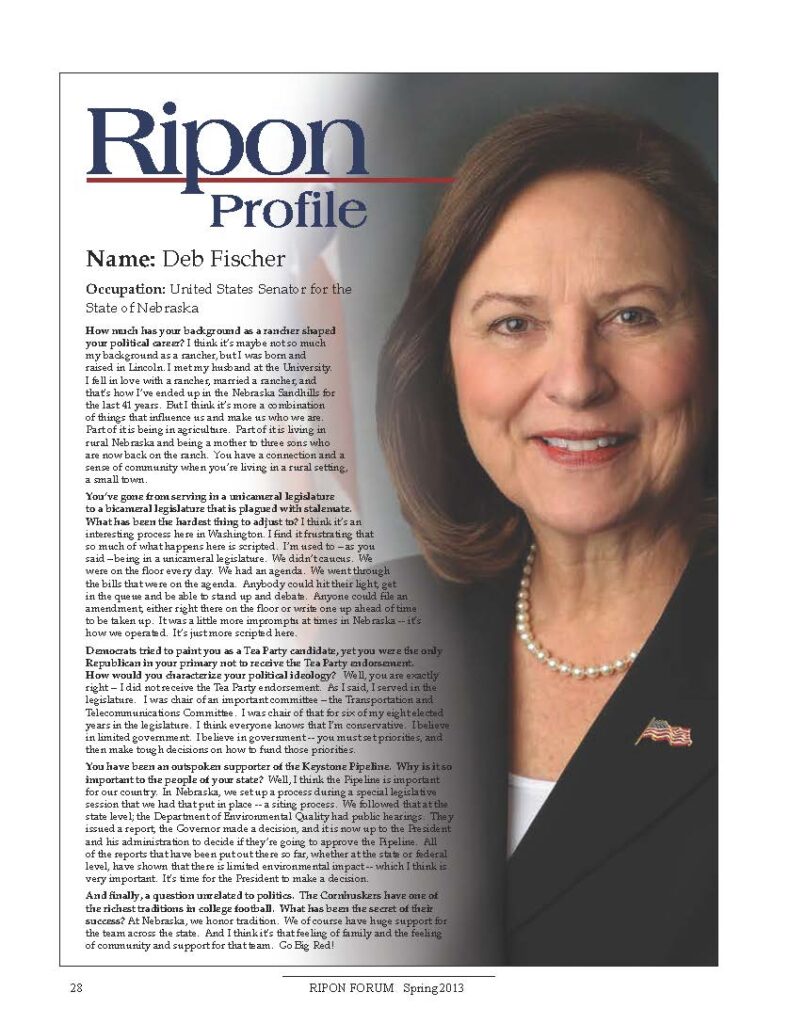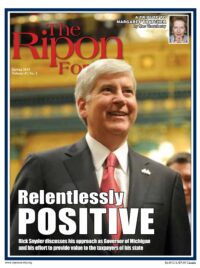
Name: Deb Fischer
Occupation: United States Senator for the State of Nebraska
How much has your background as a rancher shaped your political career? I think it’s maybe not so much my background as a rancher, but I was born and raised in Lincoln. I met my husband at the University. I fell in love with a rancher, married a rancher, and that’s how I’ve ended up in the Nebraska Sandhills for the last 41 years. But I think it’s more a combination of things that influence us and make us who we are. Part of it is being in agriculture. Part of it is living in rural Nebraska and being a mother to three sons who are now back on the ranch. You have a connection and a sense of community when you’re living in a rural setting, a small town.
You’ve gone from serving in a unicameral legislature to a bicameral legislature that is plagued with stalemate. What has been the hardest thing to adjust to? I think it’s an interesting process here in Washington. I find it frustrating that so much of what happens here is scripted. I’m used to – as you said – being in a unicameral legislature. We didn’t caucus. We were on the floor every day. We had an agenda. We went through the bills that were on the agenda. Anybody could hit their light, get in the queue and be able to stand up and debate. Anyone could file an amendment, either right there on the floor or write one up ahead of time to be taken up. It was a little more impromptu at times in Nebraska — it’s how we operated. It’s just more scripted here.
Democrats tried to paint you as a Tea Party candidate, yet you were the only Republican in your primary not to receive the Tea Party endorsement. How would you characterize your political ideology? Well, you are exactly right — I did not receive the Tea Party endorsement. As I said, I served in the legislature. I was chair of an important committee – the Transportation and Telecommunications Committee. I was chair of that for six of my eight elected years in the legislature. I think everyone knows that I’m conservative. I believe in limited government. I believe in government — you must set priorities, and then make tough decisions on how to fund those priorities.
You have been an outspoken supporter of the Keystone Pipeline. Why is it so important to the people of your state? Well, I think the Pipeline is important for our country. In Nebraska, we set up a process during a special legislative session that we had that put in place — a siting process. We followed that at the state level; the Department of Environmental Quality had public hearings. They issued a report, the Governor made a decision, and it is now up to the President and his administration to decide if they’re going to approve the Pipeline. All of the reports that have been put out there so far, whether at the state or federal level, have shown that there is limited environmental impact — which I think is very important. It’s time for the President to make a decision.
And finally, a question unrelated to politics. The Cornhuskers have one of the richest traditions in college football. What has been the secret of their success? At Nebraska, we honor tradition. We of course have huge support for the team across the state. And I think it’s that feeling of family and the feeling of community and support for that team. Go Big Red!




